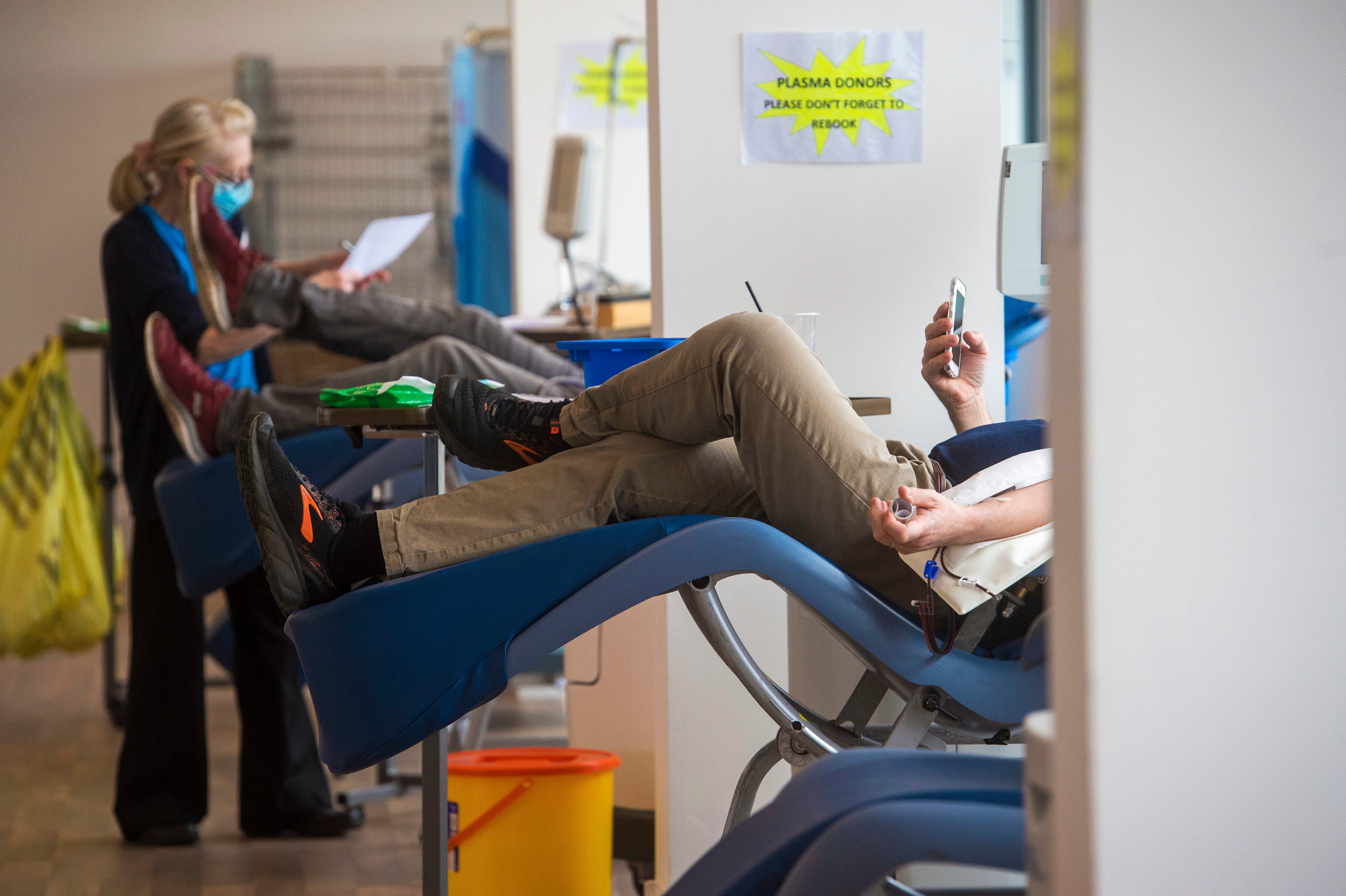Donated plasma from Covid-19 survivors is of no benefit for hospital patients, study finds
‘This is why we do randomised trials’ says researcher as latest study dashes hope for treatment

Your support helps us to tell the story
From reproductive rights to climate change to Big Tech, The Independent is on the ground when the story is developing. Whether it's investigating the financials of Elon Musk's pro-Trump PAC or producing our latest documentary, 'The A Word', which shines a light on the American women fighting for reproductive rights, we know how important it is to parse out the facts from the messaging.
At such a critical moment in US history, we need reporters on the ground. Your donation allows us to keep sending journalists to speak to both sides of the story.
The Independent is trusted by Americans across the entire political spectrum. And unlike many other quality news outlets, we choose not to lock Americans out of our reporting and analysis with paywalls. We believe quality journalism should be available to everyone, paid for by those who can afford it.
Your support makes all the difference.Using donated blood plasma from Coronavirus survivors does not help treat patients sick in hospital, according to a clinical trial involving 11,500 NHS patients.
Following the results, hospitals have been told today that they should not use so-called convalescent plasma from Covid-19 patients.
It was thought plasma taken from surviving Covid patients would have antibodies against the Covid-19 virus and that this would help fight the infection in other patients.
NHS Blood and Transplant has launched regular appeals for survivors to donate their plasma but the new research has found it has no value.
Professor Martin Landray, from the University of Oxford and joint chief investigator for the research said on Twitter: “Huge numbers of patients around the world have received convalescent plasma in the hope that it would improve clinical outcomes.
“For hospitalised patients it is now clear that that hope does not translate into reality This is why we do randomised trials - to know rather than guess.”
The study was part of the landmark, Randomised Evaluation of Covid-19 Therapy, or RECOVERY trial, which has been instrumental in discovering treatments against Covid-19.
Read more:
It helped discover the beneficial effects of dexamethasone, a cheap steroid, which cuts deaths by up to a third in the most seriously ill patients. It has also supported the use of Tocilizumab which also reduced deaths and shortened patients stay in hospital.
In its latest findings, between 28 May and 15 January 11,500 patients were randomly allocated to two groups, one to receive convalescent plasma and the other to get standard care.
It found there was no significant difference in 28-day mortality between the two groups, with both seeing 24 per cent of patients dying within 28 days.
Using plasma also had no impact on the proportion on patients discharged from hospital within 28 days, nor did it have an impact on preventing patients needing ventilators.
An alert to NHS hospitals, sent on Wednesday, told them to make sure frontline doctors knew about the findings and did not use the plasma to treat Covid patients.
The RECOVERY trial is the world’s largest clinical trial for Covid-19 treatments and has now expanded internationally with Indonesia and Nepal among the first countries to join.
Peter Horby, professor of emerging infectious diseases and global health at the University of Oxford, and chair of the government’s New and Emerging Respiratory Virus Threats Advisory Group, or NERVTAG, said: “The RECOVERY trial has been an enormous success, enrolling over 36,000 patients and delivering clear results on six treatments already. By building on this success through international partnership we can speed up the assessment of novel treatments, increase the global relevance of the trial results, build capacity, and reduce wasted efforts on small uninformative studies.’
“It is particularly important to find readily available and affordable treatments for Covid-19 that can be used worldwide. RECOVERY International will help us to identify effective treatments that can be used in less well-resourced settings’ he added.
Join our commenting forum
Join thought-provoking conversations, follow other Independent readers and see their replies
Comments